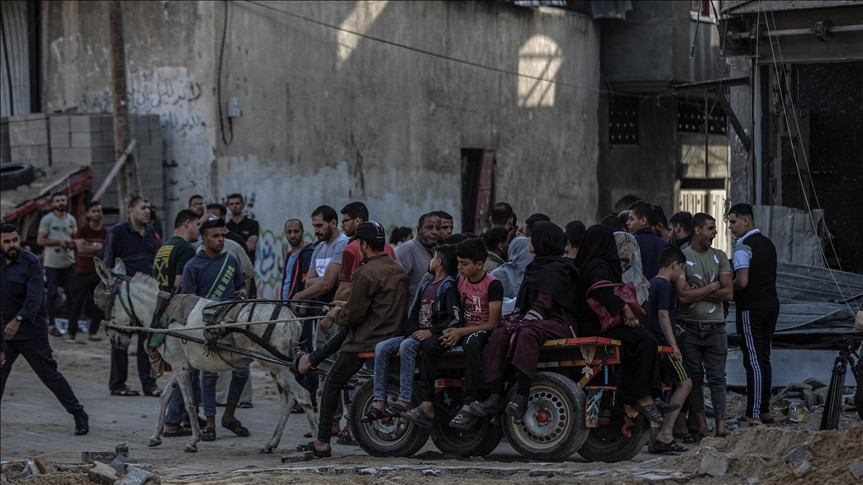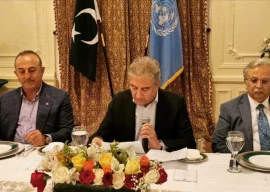
At least 75,000 Palestinians have been displaced due to the ongoing Israeli attacks on Gaza, the UN said on Thursday.
“Overall the situation remains alarming,” Jens Laerke, spokesman for UN Office for the Coordination of Humanitarian Affairs (OCHA), told Anadolu Agency.
"Hostilities between Israeli forces and armed groups in Gaza continued for the ninth day yesterday, but at a lesser intensity. On the other hand, clashes between Palestinians and Israeli forces across the West Bank, including in East Jerusalem, intensified,” he said.
"All parties to the fighting must agree to a humanitarian pause until a ceasefire is reached, to ensure access into and out of Gaza for humanitarian staff and critical goods, and allow for safe emergency relief distribution inside Gaza."
At least 227 Palestinians have been killed, including 64 children and 38 women, and 1,620 others injured in Israeli attacks on the Gaza Strip since May 10, according to the Palestinian Health Ministry. Health centres, media offices and residential neighbourhoods have been targeted.
Read more: OIC diplomats gather in New York ahead of UNGA session on Palestine
OCHA said that the total casualties in the West Bank as of May 19 were 25 deaths, including four children, and 6,309 injuries.
The total casualties in Israel as of May 19 were 12 deaths, including two children, and 796 injuries.
OCHA said that the cumulative number of internally displaced persons (IDPs) since May 10 is 75,000, including 47,000 seeking protection in 58 United Nations Relief and Works Agency for Palestine Refugees in the Near East (UNRWA) schools across Gaza.
Some 28,700 displaced people are staying with host families.
On Tuesday, OCHA said that given the limited fuel reserves, Gaza’s sole power plant operates on only two of its four turbines, resulting in rolling daily power cuts of 8-12 hours.
The North Gaza Seawater Desalination Plant is still not operational, affecting an estimated 250,000 people’s access to clean drinking water.
Another 230,000 people from Gaza City and Khan Younis have limited access to piped water due to increasing power cuts and networks damage.
Around 700 meters of wastewater networks in Beit Lahia, Gaza City and Khan Younis were damaged, resulting in wastewater flows in the streets.
In addition, all fishing activity remains prohibited off the Gaza coast.
Recent tensions that started in East Jerusalem during the Muslim holy month of Ramadan spread to Gaza due to Israeli assaults on worshippers in the flashpoint Al-Aqsa Mosque compound and the neighbourhood of Sheikh Jarrah.



1731570357-0/elon-musk-(1)1731570357-0-165x106.webp)
-(1)1717678110-0/Kendrick-(1)-(1)1717678110-0-165x106.webp)



1732445375-0/Untitled-design-(9)1732445375-0-270x192.webp)











COMMENTS
Comments are moderated and generally will be posted if they are on-topic and not abusive.
For more information, please see our Comments FAQ